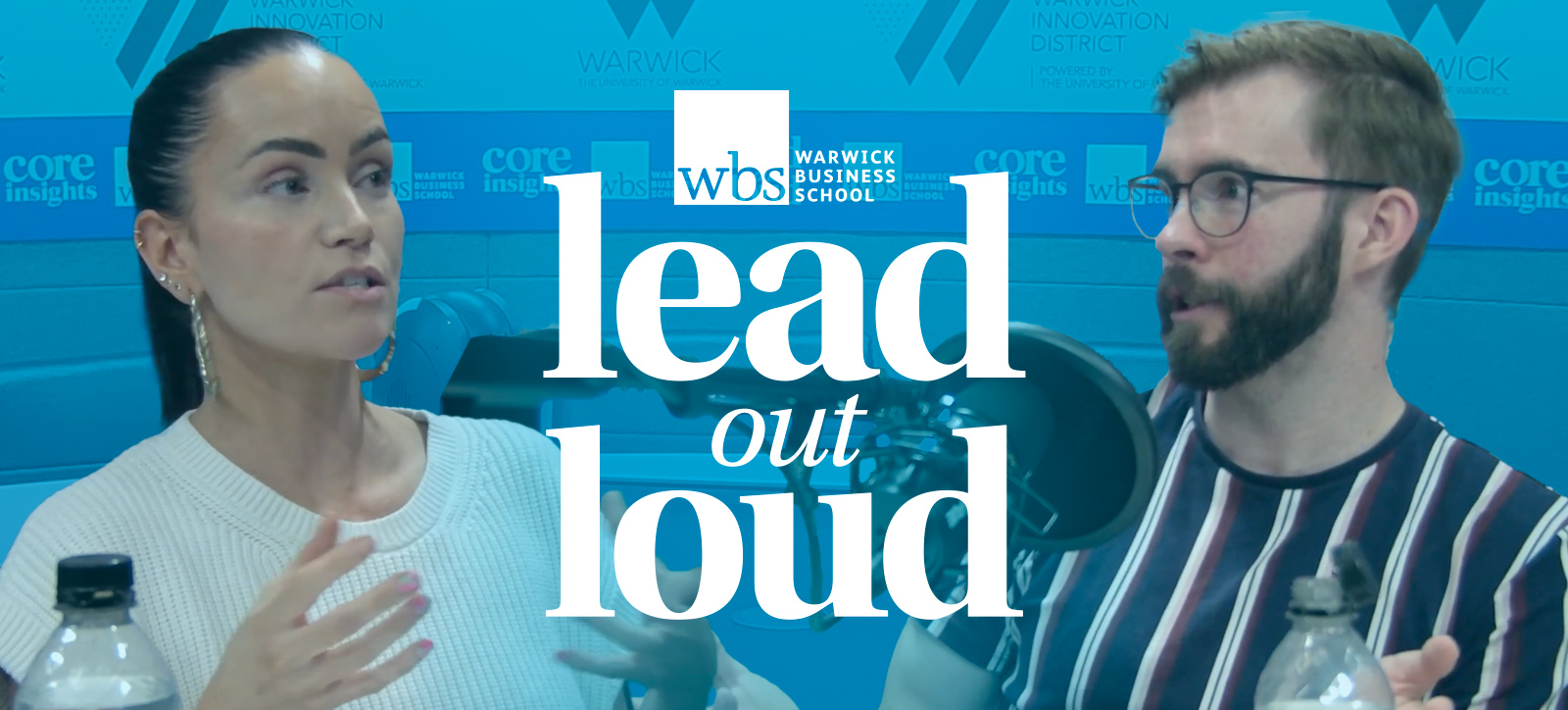
Sound: Actress Holly Matthews, founder of the Happy Me Project, and Joshua Fullard, Assistant Professor of Behavioural Science, discuss the importance of wellbeing for leadership
Prioritising employee wellbeing isn’t just a nice-to-have - it’s fundamental to effective leadership.
Creating workplaces where people feel valued, supported, and empowered leads to stronger teams, higher engagement, and better overall performance.
Wellbeing coach and actress Holly Matthews and Joshua Fullard, Assistant Professor of Behavioural Science, highlight the shift needed in leadership in the first episode of Warwick Business School's new podcast Lead out Loud. They discuss how today's leaders need to move away from rigid hierarchies and towards a more human-centred approach.
Authenticity over perfection
Leadership isn’t about having all the answers or presenting a flawless image. Ms Matthews, who started her acting career in Byker Grove and is the founder of the Happy Me Project, stresses the power of authenticity in building genuine connections with employees.
"We do not connect in our fake version," she tells host Bron Mills. "We connect in our mess, we connect in our pain."
She argues that by embracing vulnerability and showing up as real, leaders foster trust and create an environment where people feel safe to be themselves.
A culture of trust and autonomy allows employees to thrive. Dr Fullard warns against the damaging effects of micromanagement, instead advocating for supportive leadership that balances structure with flexibility.
"Making sure line managers are equipped to lead is incredibly important," he says. “It’s about setting goals relative to yourself and ensuring you have the autonomy to do what you need while still receiving the support to make today better than yesterday."
For people to succeed, they first need to believe that growth is possible. Dr Fullard explains that employees who lack confidence in their ability to improve are unlikely to progress, no matter how supportive their environment.
Leaders should foster a mindset where development is encouraged, mistakes are part of learning, and growth is seen as a continuous process.
The bottom line: What great leaders do differently
- Be real: Authenticity fosters stronger relationships and trust.
- Prioritise wellbeing: A positive work culture starts with emotional and mental wellbeing.
- Encourage growth: Help employees believe in their potential to develop and improve.
- Lead by example: A healthy work-life balance should be demonstrated, not just encouraged.
- Adapt to individuals: There’s no one-size-fits-all approach - every employee is different.
Shifting leadership towards a wellbeing-first approach isn’t just beneficial for employees - it’s essential for long-term organisational success. When leaders prioritise people, engagement rises, turnover decreases, and businesses thrive.
Further reading:
Can communal leadership benefit men more than women?
Six ways to increase inclusivity as a leader
Training managers on mental health improves performance
Subscribe to the Lead out Loud podcast on Apple, Spotify, Amazon, or iVoox.




 X
X Facebook
Facebook LinkedIn
LinkedIn YouTube
YouTube Instagram
Instagram Tiktok
Tiktok